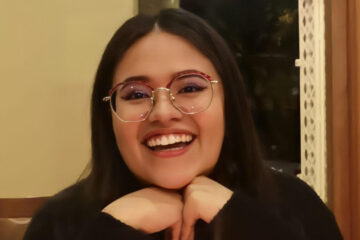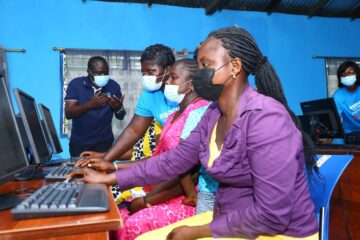Kyrgyzstan plans to launch its first satellite in 2021. What’s intriguing about it is that it’s not going to be a state program or a business doing it, but a group of young girls – the Satellite Girls.
A Woman’s Place?
People have tried to convince these young women, just like many other girl students across the country, that science is not for them. They have heard many times that their most important, if not sole, role as a woman was to be a good wife and mother. These statements reveal a bigger problem that we still grapple with.
According to a UNICEF survey, 13% of women in Kyrgyzstan get married before they turn 18. One in five women is forced into marriage through a now-illegal practice known as bride kidnapping. These cases are almost never prosecuted.
Such reality insists that this could have been the Satellite Girls’ fate, too. But one ambitious project is now boldly challenging these archaic views about women, their roles in society, and their intellectual abilities.
From Robotics to Stars
The project started almost by chance in 2016 when Kloop, one of the country’s top news agencies, and in some way an innovation lab with its own peer-to-peer journalism school for young people, announced a call to its first robotics class. Unsurprisingly, only two out of 50 applications were from girls. Known for producing audacious content and sparking heated debates on women’s rights and gender equality, Kloop decided to repurpose the robotics class and reannounced the call, this time seeking applications from girls only. It received 50 applications again – all from inspired young women.
The class was such a success that in 2018 it transformed into the all-women Kyrgyz Space Program. Mentored by renowned space scientists, twelve young women are now constructing a cubesat, a microsatellite the size of a tissue box, which they are planning to use to receive and send signals to the lower Earth orbit.
Unique Support
Another fascinating aspect of the project is its financing. Partially funded by an international donor, the Space Program largely relies on individual donations through a crowdsourcing platform Patreon. It receives support from people from all around the world, including from Kyrgyzstan, where we don’t normally practice the culture of donations. If people in Kyrgyzstan are giving their hard-earned money to support the Satellite Girls, it says a lot about the significance of the project.
Ad Astra
As it often happens with “out of the box” ideas, the project and the girls received a lot of backlash on social media. They were laughed at, they were told the project would not last because “it was just a bunch of girls pretending to know what they were doing”, and “why are they trying to take over a man’s occupation in the first place?! No man will want to marry that kind of a woman.”
Despite the backlash, the team is pressing on and reaching new heights. In 2018, the 20 year-old project lead Alina Anisimova became BBC’s one of the 100 influential and inspirational women around the world.
The Space Program will probably not solve all the problems women are facing in Kyrgyzstan, but it is certainly inspiring resolute change.
Join the Cause!
Want to contribute to this change? Support the project on Pateron.
Thumbnail illustration by Tatiana Zelenskaya for Kloop.kg



